Apple's newly announced mobile partnership with IBM has been greeted by a number of analysts and pundits as being both "not that big a deal," or conversely, the dramatic reversal of a long standing rivalry. Both are wrong, here's why.
No big deal?
Piper Jaffray analyst Gene Munster offered one of the least enthusiastic views on the announcement, noting that Apple already has significant enterprise penetration while postulating that even "if half of the Fortune 500 were to each purchase an incremental 2,000 iPhones and 1,000 iPads above what they were planning to purchase as a result of the IBM deal, it would mean about a half a percent to CY15 revenue."
Munster also offered a broad interpretation of the "exclusive partnership" the two companies detailed, writing, "we expect IBM to eventually offer similar solutions on Android over time."
"Robert X. Cringely" similarly offered a dim view of IBM's business apps and flatly predicted that "iOS cloud services from IBM won't happen," concluding that "neither company will be seriously affected by the other. It's just not that big a deal."
IBM's existing mobile business apps and cloud services certainly don't look capable of dramatically boosting Apple's iOS sales on their own. But that's not what the companies announced. Instead, the two described "exclusive" plans to work together to "transform enterprise mobility through a new class of business apps."
As noted in greater detail below, the language both companies use in describing their partnership indicates that it is not merely an effort to sell a few companies an extra thousand iPads. Apple and IBM have big goals in mind.
Apple and IBM have lots of history as close allies
At the same time, Apple and IBM are not suddenly working together for the first time. We're a very long ways from 1982, when IBM entered the new microcomputer market that Apple had ignited with the Apple II. Apple initially "welcomed" IBM to the computer market (below), as a much larger competitor.
It subsequently portrayed Big Blue as a 1984 Big Brother in 1984 with its iconic original ad for the Macintosh. It then insulted IBM and its customers even more explicitly in "Lemmings," a second and even more provocative SuperBowl ad that portrayed blindfolded PC users marching themselves off a cliff.
By the late 80s, IBM had lost control of the PC to Microsoft on its own, and failed to win it back with its proprietary design for new PS/2 systems. While IBM sold notebooks and tablets that competed against Apple's PowerBooks and Newton MessagePads in the 1990s, throughout that decade Apple and IBM actually aligned to work together in several major projects.
The AIM Alliance between Apple, IBM and Motorola scaled down IBM's POWER RISC server chipset into the PowerPC processor that was used in Macs starting in 1994 and continuing into 2006.
Apple also collaborated with IBM to develop "Macintosh Application Services" to host PowerPC Mac software on IBM's AIX Unix workstations, and in parallel shipped IBM's AIX on its own high end Apple Network Server in 1996.
In parallel with PowerPC, the Taligent project teamed Apple's future plans for "Pink," a new OS intended to replace System 7, with IBM's parallel efforts for Workplace OS. It intended to develop a new OS microkernel capable of supporting Macs, OS/2 and Unix, and developed object oriented frameworks pattered after Steve Jobs' NeXT. Taligent primarily aimed to copy NeXT and steal away Jobs' early supporters (including IBM, and later HP).
After the Taligent partnership collapsed, Apple decided to acquire NeXT as the foundation for its advanced new Mac OS X instead.
Kaleida Labs was a third high profile partnership between Apple in IBM in the early 1990s, aimed at creating a cross platform, scriptable multimedia development platform. The collaboration effectively raided Apple's QuickTime team of talent and spent tens of millions of dollars before collapsing in failure in 1996. Its role was supplanted by Macromedia Director, and then by the web, particularly through plugins like Java and Flash.
Apple & IBM partnerships in the 2000s
Apple's acquisition of Jobs' NeXT in 1996 further helped to align the company with IBM as a co-competitor to Microsoft and an ally to Unix and open source software. In 2005 IBM sold its PC business to Lenovo. It increasingly threw its support behind Linux, and in 2007 created a fork of OpenOffice that it sold as a Microsoft Office competitor named IBM Lotus Symphony.
In 2007, IBM's Research Information Services conducted a study that provided employees with MacBook Pros rather than Windows machines. Employee feedback noted comments including, "this can free us from the Windows stranglehold," and "I have been a true PC stalwart for 2+ decades, but after trying Vista, I'm ready for a change."
The next year, IBM ported its Informix Data Server to OS X Server and announced plans to bring Lotus Notes (IBM's competitor to Microsoft's Exchange) and the Symphony office app suite to Apple's Mac and iOS platforms.
IBM now has a portfolio of dozens of enterprise apps for iOS, and was in fact one of the first App Store developers to embrace the platform in 2008 before Apple had even released its iPhone SDK and App Store.
IBM targets Big Data on the big platform
The big news of the new partnership between Apple and IBM therefore is neither that they are now working together for the first time, nor that IBM offers some apps for iOS devices. What's new is the clearly emphasized exclusivity of the relationship, and the future direction for new iOS apps, management tools and cloud services.
IBM already provides Android phone support roughly on par with iPhone, and Android tablet support that's nearly the same as its iPad's. It also offers support for BlackBerry, PlayBook, BB10, Windows Phone, Windows RT and even Symbian. IBM's new apps will exclusively target iOS however.
That makes sense because IBM will be selling and leasing iOS devices, but also because IBM can now focus on developing native apps for the single platform that is already being broadly used in the enterprise, without spending lots of resources testing and maintaining support for a broad array of OS versions and APIs and a bewildering range of hardware devices.
In parallel with the development of Apple's iOS platform over the last seven years, IBM has moved away from selling office apps (abandoning its OpenOffice / Symphony suite) to instead focus on providing managed cloud infrastructure, consulting and management services, as well as "big data" analysis.
IBM's SmartCloud hosts public cloud services for customers (comparable to Amazon Web Services) and also offers private cloud services, where IBM sells the customer servers they then own and operate. Equipment can alternatively be leased from and/or managed onsite by IBM.
The partnership specifically outlined, "IBM's big data and analytics capabilities, with the power of more than 100,000 IBM industry and domain consultants and software developers behind it," will be used to "create apps that can transform specific aspects of how businesses and employees work using iPhone and iPad."
One taste of IBM's big data analytics has appeared over the last two holiday shopping seasons. In 2012, the IBM Digital Analytics Benchmark highlighted (below) that most shopping was being done on iOS devices— even before the media was manipulated to report that Apple had run out of "innovation" and that Android and Samsung were "taking over" mobile devices.
The following year, IBM's analytics revealed that the divide had grown even greater, with Apple's iOS users now accounting for five times the orders of Android users. The media's handwringing about Apple throughout in 2013 had temporality affected the company's stock price, but wasn't affecting the results that matter in the device market.
The ability to correctly identify those kinds of trends— without the facts being contaminated by ignorance or wishful thinking— is critically important to business users. That explains why the partnership's announcement described new apps powered by such analytics as "allowing companies to achieve new levels of efficiency, effectiveness and customer satisfaction."
As Apple noted, IBM has "established the world's deepest portfolio in Big Data and Analytics consulting and technology expertise based on experiences drawn from more than 40,000 data and analytics client engagements. This analytics portfolio spans research and development, solutions, software and hardware, and includes more than 15,000 analytics consultants, 4,000 analytics patents, 6,000 industry solution business partners, and 400 IBM mathematicians who are helping clients use big data to transform their organizations."
iWork Enterprise
Apple has its own iWork apps for small business and education users, it recently gained Microsoft's Office mobile apps (currently exclusively) on iPad, and is now working with IBM to develop "a new class of 'made-for-business apps' targeting specific industry issues or opportunities in retail, healthcare, banking, travel and transportation, telecommunications and insurance, among others, that will become available starting this fall and into 2015."
Rather than just being some new App Store titles listed by IBM, the companies have outlined that IBM will be selling Apple's iOS as part of its own MobileFirst platform, which will "deliver the services required for an end-to-end enterprise capability, from analytics, workflow and cloud storage, to fleet-scale device management, security and integration."
Additionally, "enhanced mobile management includes a private app catalog, data and transaction security services, and productivity suite for all IBM MobileFirst for iOS solutions. In addition to on-premise software solutions, all these services will be available on Bluemix— IBM's development platform on the IBM Cloud Marketplace."IBM is providing all the things Apple hasn't ever been very good at or shown much interest in doing itself
That means IBM is providing all the things Apple hasn't ever been very good at or shown much interest in doing itself, from selling consultation and support services, to building and maintaining server infrastructure and custom apps for clients. That includes enhancing AppleCare for enterprise users with "on-site service delivered by IBM."
IBM is also providing "device supply, activation and management services for iPhone and iPad, with leasing options." Those again are the kinds of services that HP and Dell were historically much better than Apple at providing for the PC industry.
With BYOD, Apple got its foot in the door and iOS devices became broadly adopted by business and government users. Partnering with IBM, Apple can work on turning its mobile devices into an enterprise volume play.
Apple, IBM are thinking big
So far, the market appears to have seen Apple and IBM as an obvious threat to BlackBerry, which certainly does have much left to lose: 72 million subscribers as of the first quarter of 2014. iPhones have taken a painful bite out of BlackBerry's enterprise sales, but iPads target something different: conventional PCs.
This makes Munster's estimates of Apple potentially selling only an additional '2,000 iPhones and 1,000 iPads' to half of the Fortune 500 via some new IBM apps particularly confusing. Apple quite clearly plans to aggressively target enterprise PC sales— a substantial market— with its Post-PC mobile devices. Tim Cook addresses the iPad's widely acknowledged potential to eclipse PC sales at every opportunity.
"We continue to believe that the tablet market will surpass the PC market in size within the next few years and we believe that Apple will be a major beneficiary of this trend," Cook stated in the company's April earnings call."We continue to believe that the tablet market will surpass the PC market in size within the next few years and we believe that Apple will be a major beneficiary of this trend " - Tim Cook
Apple already has no problem selling fleets of tens of thousands of iPhones and iPads to corporate, government and education buyers. It would only need IBM's help to target the conventional PC for mass eradication throughout the enterprise, driven using innovative, exclusive native apps capable of radically changing how companies use technology. Apple's description of IBM makes it very clear that's exactly what both companies plan to achieve.
On its new iPad business site, the company states "Apple and IBM are working together to bring iPhone, iPad, and IBM MobileFirst for iOS apps to enterprises around the world. Our exclusive global partnership will deliver a new class of apps that connect users to big data and analytics right on their iOS devices with more ease and efficiency than ever before. Apple and IBM are redefining the mobile enterprise by combining the exponential power of corporate data with the world's best mobile technology."
In its original press release Apple stated, "IBM's 5,000 mobile experts have been at the forefront of mobile enterprise innovation. IBM has secured more than 4,300 patents in mobile, social and security, that have been incorporated into IBM MobileFirst solutions that enable enterprise clients to radically streamline and accelerate mobile adoption, help organizations engage more people and capture new markets."
Additionally, "IBM has made a dozen acquisitions in security in the past decade, has more than 6,000 security researchers and developers in its 25 security labs worldwide that work on developing enterprise-class solutions."
Apple's own strategy in acquisitions (as well as in patents) has generally targeted the rapid implementation of differentiating features and technologies (such as Touch ID, the custom silicon in the A7 chip, and features ranging from Siri to face recognition to iTunes Radio to App Store enhancements).
By partnering with IBM, Apple can leverage outside expertise in security, social and mobile deployment without distracting itself from its core competency in building hardware, software and platforms.
And now, a warning
In retrospect, the historical partnerships between Apple and IBM didn't have a very good track record. Taligent and Kaleida were total failures, while PowerPC failed to keep up with the pace of the greater market. IBM Lotus Notes and Symphony did not exactly transform the industry on any platform.
But today's Apple and IBM share little in common with their previous incarnations in the 1990s. Apple is now not only very successful and profitable, but has a virtual lock on mobile enterprise products, and in particular devices with a sophisticated native app development platform (as opposed to BlackBerry's messaging-centric platform built as a simple Java VM).
Where Microsoft once ruled the enterprise and partnered with a series of companies that shut Apple out, it is now frantically trying to maintain the status quo for Windows (even as its customers reject Microsoft's current direction) as it flip flops between strategic directions in other markets.
From last year's "devices and services" plan, which notably failed to sell devices, to its latest nebulous cloud strategy that failed to really articulate a specific strategy at all, Microsoft is currently presiding over a stagnant market for conventional PCs that virtually every market research firm sees as being overtaken by tablets, and specifically Apple's iPad.
That fact highlights another reality: since the iPad's debut in 2010, marketing companies have deliberately framed it as a niche device with no possible impact on PC market, using selected data teased into conclusions that consistently flattered Microsoft regardless of the data involved.
With a major ally in IBM helping to sell its products, Apple will likely face less overtly deceptive media coverage denying the now clear and obvious shift occurring as conventional PCs are replaced and augmented by more mobile— and much easier to manage— post PC devices.
 Daniel Eran Dilger
Daniel Eran Dilger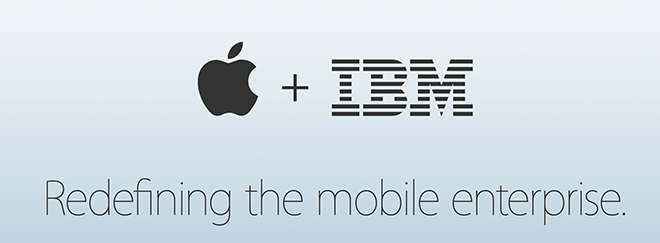
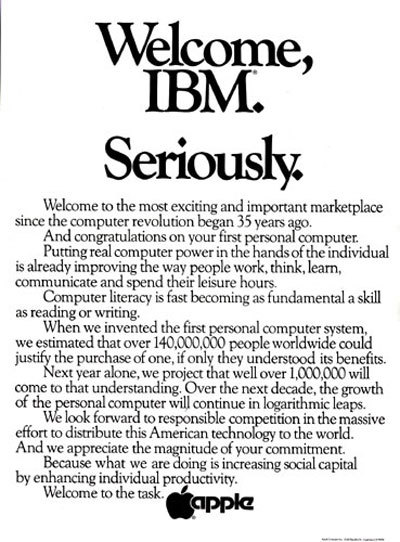
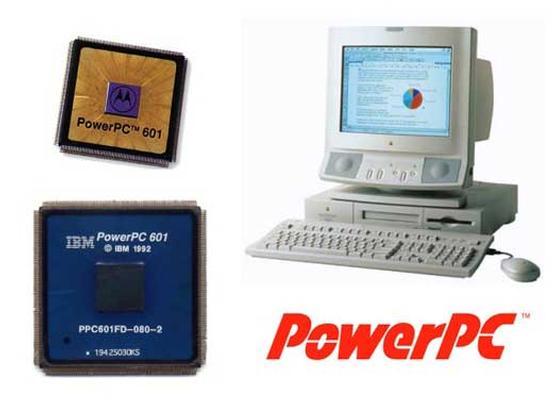
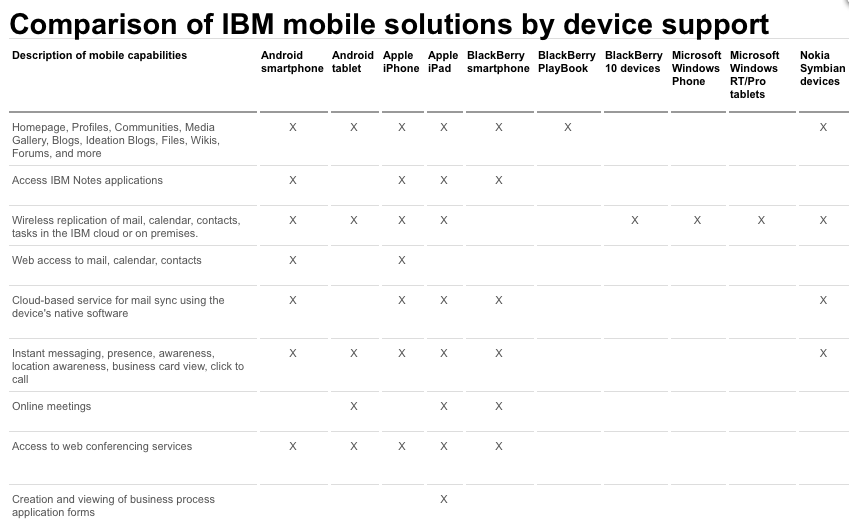
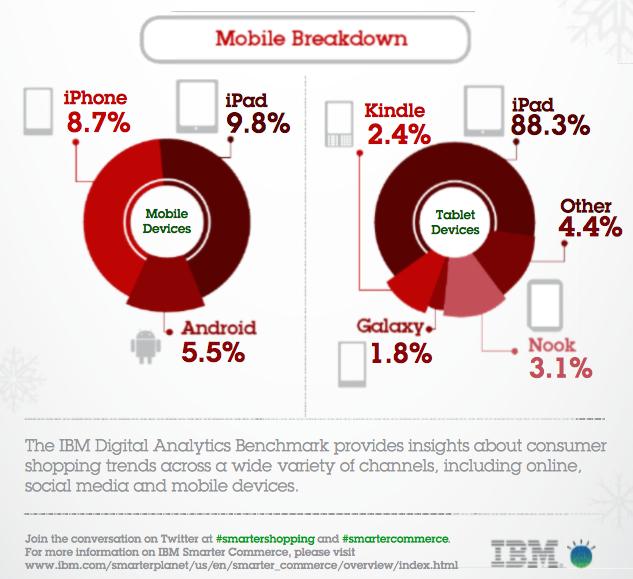
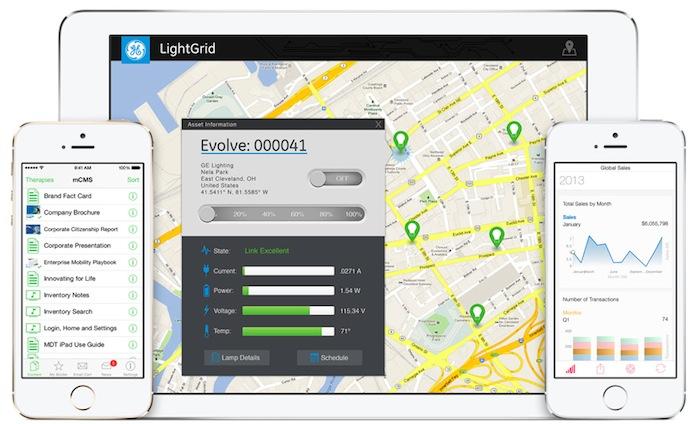
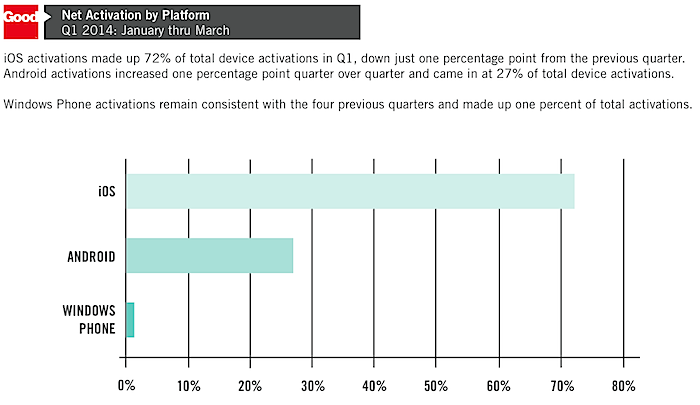

-m.jpg)






 Marko Zivkovic
Marko Zivkovic
 Mike Wuerthele
Mike Wuerthele
 Christine McKee
Christine McKee
 Amber Neely
Amber Neely
 Wesley Hilliard
Wesley Hilliard

 William Gallagher
William Gallagher










55 Comments
Where does the iBeacon fit in here? If companies are to turn IBM big data analytics on their own operations (i.e. to find efficiencies) they will possibly need trackers/sensors around the enterprise.
Most Microsoft partnerships end in tears. For the [i]other[/i] partner.
I get the strategy, and here's hoping it works, but I just don't see tablets really taking hold for most workers. The form factor just isn't as good as a plain ol' keyboard and mouse with a big screen or two for either looking at stuff or inputting stuff.
Admittedly there are all kinds of opportunities for new applications, like retail floor staff and nurses, but for jobs that don't require carrying a computer around with you, like a travel agent or stockbroker, a tablet is just more hassle to work with than a traditional PC layout.
Maybe if Apple creates some kind of dock (for lack of a better term) that lets users tie it to a real keyboard and maybe an external monitor it could take a real crack at the desktop, but I just don't think a tablet is particularly well suited to cubicle dwellers.
Either way, it'll be fun to see how hardware for the post-PC era plays out, whether the hardware evolves to accommodate working styles besides stab-and-swipe while holding the device, or if people will just adapt to interacting with flat computers.
There are several ways this partnership will end and it will end at some point. Either Apple will shut out IBM once it has achieved enough penetration and expertise in supplying enterprise customers or IBM will use the experience they've gained on the Apple ecosystem to replicate it to other platforms. If it's the apps the enterprise customers want and need then does the form factor matter (it does matter to consumers but to big businesses and their bean counter?). Apple needs to ensure its the hardware supplier that gets entrentched to the standard user.
To understand this partnership, you must understand today's IBM a bit and most people don't.
The fact is most of the IBM backend products and solutions quietly, securely and reliably affect all of our lives every day.
We don't talk about them much because they are not sexy like iPhones and iPads but IBM has a lot of great enterprise stuff that Apple does not have and needs to really break into the enterprise.
Note the parallelism between IBM and Apple in 2 different worlds.
They both make their own Hardware, Processors, Operating Systems and Software. They both have bleeding edge research teams and a ton of Patents. There is great synergy between their products and no overlaps; not just using mobile iPad and iPhones as front ends for IBM's business software but other things like Apple's SIRI with IBM's Watson and Deep Blue in the back end for example or taking IBM's research findings and creating insanely great products. Synergy in
Note that IBM is no longer in the Wintel desktop and server business so there is synergy in desktops and laptops as well. Moreover, remember that iOS is a derivative of Mac OS X so the software is easily portable.
If Apple & IBM can securely and reliably bring out the richness and power of these systems to the mobile world, they can again revolutionize the computer industry. Depending on the success of this partnership and considering that today's IBM is a perfect complement for Apple in the enterprise with zero overlap, I predict that it may make sense in the long term for Apple to buy IBM in order to provide better integrated solutions from one company.
Tim is thinking BIG folks... way beyond the comprehension of the anal-ysts.